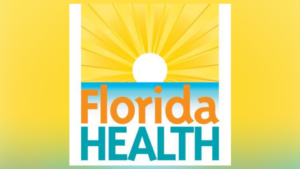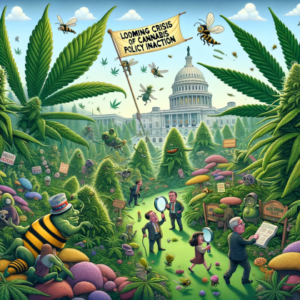
Trulieve $143mm Refund Claim Highlights US Treasury As The Kingpin of Cannabis
Trulieve Cannabis Corporation, one of the nation’s industry leaders, took a stance against unfair taxation, when it issued a claim to the IRS claiming a refund for $143 million in taxes that, according to the company, it does not rightly owe.
Specifically, the claim refers to the amount lost due to IRS 280E taxation, which stems from outdated federal regulations that impose excessive taxes upon cannabis operators, and that bans dispensaries from taking standardized deductions–including business costs. IRS 280E capitalizes on cannabis’s federal status as an illegal Schedule I drug, despite the fact that businesses such as Trulieve are legitimate operators in legalized states.
The sheer amount of profit that Trulieve has had to sacrifice to IRS 280E highlights a larger issue in the industry at large. Through excessive taxation, the government has severely restricted the profitability of cannabis nationwide, while making the US Treasury–the very entity that distresses the industry with unfair taxes–its greatest beneficiary.
And until the SAFE Banking Act is passed, the government will continue to receive a disproportionate amount of funds from an industry that it refuses to recognize as legal, legitimate, and beneficial to both American patients and the economy.
Trulieve Requests 280E Refund from IRS
Recently, Trulieve filed amended tax returns for a return accumulating the total IRS 280E taxes paid for multiple locations in 2019, 2020, and 2021, which total a staggering $145 million. Trulieve has justified the claim by arguing that it does not rightly owe the taxes paid under IRS 280E, echoing the sentiments of the industry at large regarding unfair taxation under outdated, irrelevant federal laws. However, at present there is no guarantee that the corporation will receive this refund.
280E taxation bans cannabis businesses from taking standard deductions granted to virtually all other business types, including the costs of operating a business. IRS 280E, alongside various other complications due to cannabis’ federally illegal status, has created countless challenges for marijuana operators in legitimate states, despite the fact that it has been legalized in nearly two-thirds of the country.
According to the financial and strategic advisory firm Viridian Capital Advisors, eliminating cannabis’s taxation under IRS 280E would have wide-ranging benefits not only for companies including Trulieve, but also for the economy at large. Experts estimate that elimination of IRS280 could add an estimated $700 million in free cash flow in 2023 alone.
The Status of SAFE Banking & Potential Rescheduling

Early this September, news of potential relief from IRS 280E came when the Department of Health and Human Services announced its recommendation that the DEA reclassify cannabis as a Schedule I substance alongside other prescription drugs. This would deescalate marijuana’s current classification as a Schedule I drug alongside heroin, cocaine, and other addictive substances with “no recognized medical potential.” Cannabis rescheduling would relieve the industry of excessive taxation under IRS 280E, which applies to profits regarding Schedule I substances.
In September, Trulieve’s CEO Kim Rivers voiced optimism on the news of potential rescheduling. “The reduction of cannabis from a schedule I to a Schedule III is monumental and that has significant practical impacts for our business”–including tax relief. Rivers revealed that over the last 24 months, Trulieve had paid over $220 million in 280E taxes.
Like all cannabis businesses, Trulieve has also been forced to navigate countless other complications due to cannabis’ federally illegal status, including a lack of access to basic credit card and communication services. These challenges can be alleviated only through the SAFE Act, which is pending Congressional review after its advancement following the HHS recommendation.
“We have to run our businesses incredibly efficiently due to the fact that we have this heavy, heavy tax burden,” Rivers said. Rivers emphasized the need not only to reschedule cannabis, but also to advance the SAFE Banking Act to give dispensaries access to financial services: “We think this is helpful in that it signals to Congress, hey, there’s medical evidence here. The FDA is saying this should not be a Schedule I.”
Looking Ahead: The Fight Against Unfair Cannabis Taxation
Trulieve’s case highlights the extent to which excessive taxation has distressed industry players nationwide, while revealing the massive benefits that the government continues to reap from an industry that it refuses to treat as legitimate.
If cannabis is rescheduled and the SAFE Act is passed, businesses will be able to reclaim enormous profits, as evidenced by Trulieve’s case, while acquiring access to basic financial services essential to business operations. “We think that this momentum is really Key,” said Rivers. “And again, [we are] very, very excited to be at the forefront as we turn the page on prohibition.”
To learn more about the unfair taxation of marijuana and what you can do to help, visit our article on IRS 280E here.








